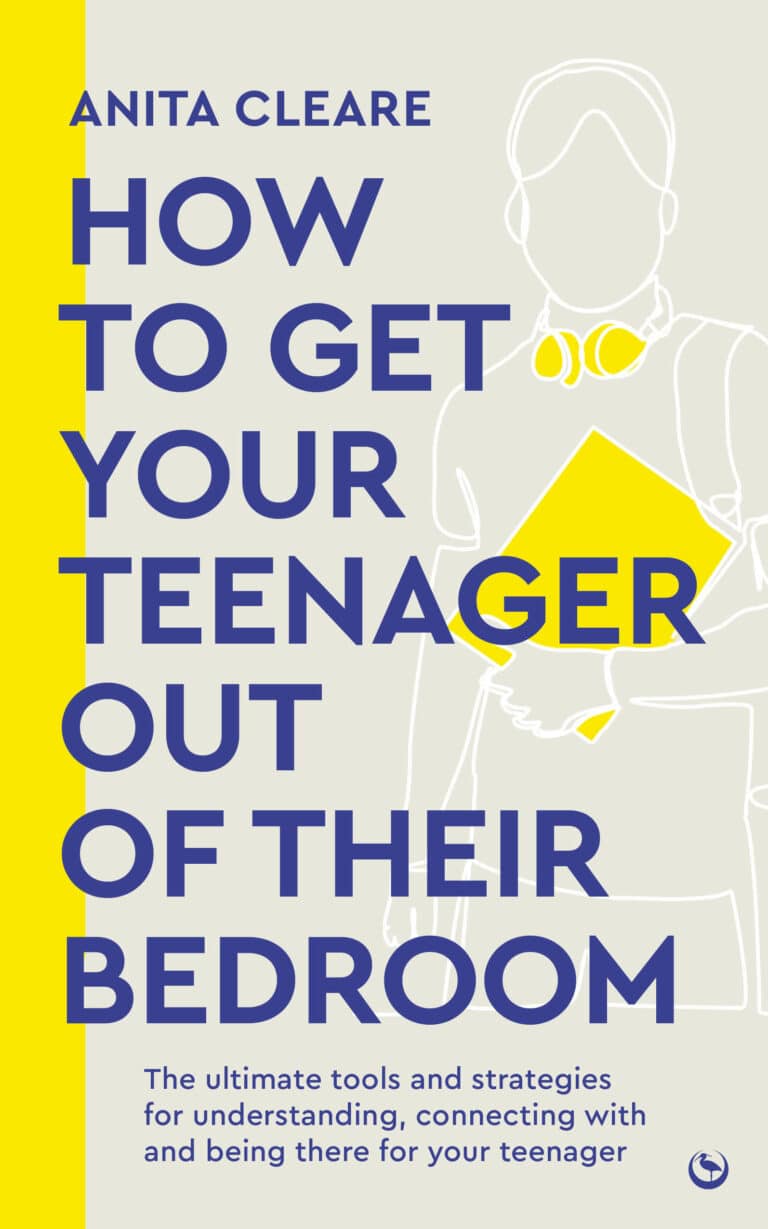Teens retreat to their rooms for lots of reasons: gaming, social media, low self-esteem or just for establishing their independence. The problem is, if your teen won’t talk to you, it’s very hard to know what’s going on or how best to help.
How to Get Your Teenager Out of Their Bedroom brings together all the tips modern parents need to support teens’ wellbeing despite that often-closed bedroom door, including:
- small everyday actions to build connection.
- the blueprint for how to get a reluctant teen to spend time with you (and why it really matters that you persevere!)
- tips on how to communicate effectively (without nagging!)
- strategies for tackling tricky issues like compulsive gaming, obsessive phone use and anxiety
- an honest look at the difficult emotions that parents experience when our child turns into a teen and starts pushing us away
What the experts say:
“This book is reassuring and comforting for parents who may believe they’ve ‘lost’ their child now that their little one has become a teenager. Anita’s work shows this is not the case and that there are many ways to keep that loving connection with your adolescents as they grow up and become their own people. It’s a handbook of useful ideas which will help remove some of the stress of living with teenagers and will bring you closer together.” Lorraine Candy, author of Mum What’s Wrong With You? 101 Things Only Mothers of Teenage Girls Know
“Anita tackles the grittiest of problems facing parents of teens and brilliantly simplifies complex science, making it easy to understand the unique needs of our teenagers. I especially appreciated the phrases and scripts for difficult conversations—perfect for those moments when parents just don’t know what to say. It’s a treasure trove of wisdom and support for any parent navigating the teenage years.” Dr Bettina Hohnen, Clinical Psychologist and Senior Teaching Fellow at UCL & author of The Incredible Teenage Brain
“A warm-hearted guide that provides light at the end of the parenting teen tunnel… Anita manages to share effective tips coated in love and empathy for all parents and carers. She makes the reader feel held, understood and equipped.” Dr Kathy Weston, Tooled Up Education
“In How to get your teenager out of their bedroom Anita has created a safe space for parents. Its insights into adolescence will help them step into their teenagers’ shoes, and walk with them through these turbulent years, with an understanding and patience that can often be hard to hold onto, faced with a door that’s frequently firmly closed, both literally and metaphorically. Anita’s personal and professional experiences combine to ensure her advice is pragmatic while also non-judgemental and compassionate, towards both teens and their baffled, frustrated, deeply loving parents… This is a book that is full of love, and ultimately brings hope.” Fiona Spargo-Mabbs OBE, DSM Foundation
“This is an excellent practical guide to parenting a teenager! If a parent implements the suggestions made by Anita Cleare (for example, the Five Golden Rules for parents of teens), the teenage years will be much more enjoyable for the entire family. I highly recommend this book!” Rex Forehand, Pd.D., ABPP Distinguished Professor (Emeritus), University of Vermont, co-author of Parenting the Strong-Willed Child (4th Edition)
“This is exactly what parents want – evidence-based, practical advice and ideas delivered with humour and kindness.” Alicia Drummond, The Wellbeing Hub
BUY IT NOWAll links to Amazon on this website are affiliate links which means the Positive Parenting Project earns a small commission if you click through and make a purchase.

How to Get Your Teenager Out of Their Bedroom is available in English internationally in paperback, e-book and audio book versions.
There is also a Brazilian version (in Portuguese): Enfurnados: Como tirar o seu adolescente do quarto.
BUY IT NOW